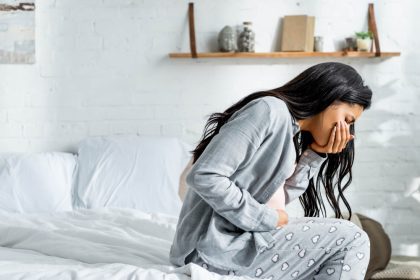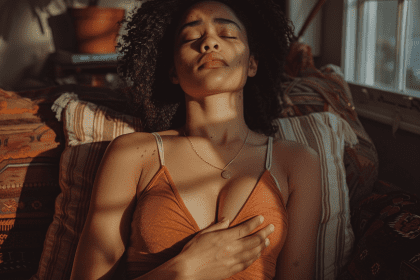Marisa Hall, a Los Angeles native and health care executive with over two decades of leadership experience in the pharmaceutical industry, has transformed her personal battle with breast cancer into a powerful platform for advocacy and change. As a two-time breast cancer survivor, Hall has leveraged her professional expertise and personal experiences to become a passionate voice for diversity, inclusion, and women’s health. Her journey from the boardrooms of Fortune 500 companies to the frontlines of global health initiatives exemplifies resilience and the power of turning adversity into opportunity. In a recent interview on Health IQ with Munson Steed, Hall opened up about her breast cancer diagnoses, treatment experiences, and the importance of early detection and community support.
[Editor’s note: This is a truncated transcribe of a longer video interview. Please see the video for the extended version. Some errors may occur.]
Where were you when you first heard about your breast cancer diagnosis?
When I first heard I had breast cancer, it was after having a mammogram at age 38. I felt a small lump on the side of my left breast, which prompted me to go. After a biopsy, my physician told me to turn around and meet her at the office because they weren’t allowed to give me the news over the phone. So, I had to drive to the office at five o’clock when they were closing. When I went to the office, she shared with me that I had breast cancer.
How did you react to the news?
When you first hear you have breast cancer, your whole life flashes in front of you. When you hear the word cancer, you automatically think you’re going to die. That was the longest walk to my car, and my whole life flashed in front of me. I just had a grandmother that passed away of colon cancer and a grandfather that passed away of prostate cancer. So, the first thing I thought about is death. I didn’t know how much longer I had. She didn’t really go into details. She said that I had to make an appointment with my oncologist. During that whole night, it was hard for me because I was just thinking about death. That’s all I was thinking.
What stage was your cancer and how was it treated?
Luckily, I was in my first stage. It was an invasive treatment, but the cancer was considered invasive. Because I caught it early, I was able to treat it effectively. My oncologist suggested getting a lumpectomy at the time. A lumpectomy is when they go in there, and they take the tumor out and make sure around the margins are clear. She shared with me that I would have to get radiation and chemo moving forward. That’s why I tell young women, I promote early diagnosis, so you can get screened early, so you can live to share your story. So just be up on your screens every year. And if you feel anything, don’t hesitate to go get checked.
How did you approach your second diagnosis differently?
The second time, I decided not to be alone and welcomed people into my space. I am a two-time breast cancer survivor. The first time, I kind of did it alone. I didn’t want to tell anybody. But the second time, I did share and tell people, and it made a big difference in my healing process. I shared my diagnosis with my classmates while getting my master’s. I remember sharing with 70 students. I wanted them to be aware of breast cancer. I wanted them to know how important it is to be screened. And I wanted them to also know that someone like me, their classmate that they know, is going through that. When I did share the story, I had 70 students stand up and give me a hug. So, it was a hug train that they formed. Having that love and support meant a lot to me.
How do you address concerns about attractiveness after breast surgery?
I understand that because I went through the same thing, mentally, physically, emotionally, spiritually. Your body is going through a whole transition. You’re not going to be the same after the surgery, and you have to accept that. It’s either you want to be pretty, be in vain, have cancer, or you want to live. I chose to live. My whole thought was I just needed it out of me. However it happens, just get it out of me because I want to be able to share my story, see my family. You do have doctors, plastic surgeons really try to work with you the best way they can to make sure you look normal. But it is, it could be a struggle because sometimes there is deformity throughout those surgeries, but they are so advanced in technology that in my case, I’m fine. But I understand it is a journey. It is a journey.
How do you live each day after being diagnosed twice with cancer?
I tell ladies to be up on your doctor’s appointments. Make sure you get screened. Don’t miss an appointment. If you haven’t made an appointment, schedule an appointment, and it’s better to be safe than sorry. I would rather you be over-screened than not get screened at all. And when you do get screened, I know with a lot of African American women, we have dense breasts and we’re cystic breasts, that sometimes they have to tell you to come in again. That’s okay. Just continue to get screened because I would rather you catch it early so you can share your story than catch it late. Don’t ignore if you have any lumps, pains, or feel anything, and I don’t care if you feel like you’re being overly dramatic, it is better to be safe. Early diagnosis is going to save your life. Early diagnosis is going to give you a chance to share your story. I look at life differently now. I remember those times I was driving in a car and I was thinking, am I going to feel the sunlight again? Am I going to see the sun again? Am I going to be in that hospital? Am I going to pass away in the hospital? So, I start looking at things differently and then I realize don’t sweat the small stuff. Certain arguments with people, it’s not even worth it. Just as long as I’m here and I just enjoy my family and friends and take life more seriously now.
Why are you in Kenya now?
I’m actually in Kenya doing the mission trip, helping women who have cancer, sharing my story with them, as well as speaking with women who have HIV and whose communities have shunned them because they have the disease. So speaking to them, sharing their stories, sharing stories is healing for both parties. And I continue to share my story. And if I have to all over the world, I will. But that’s why I’m in Kenya right now, sharing my story.
















